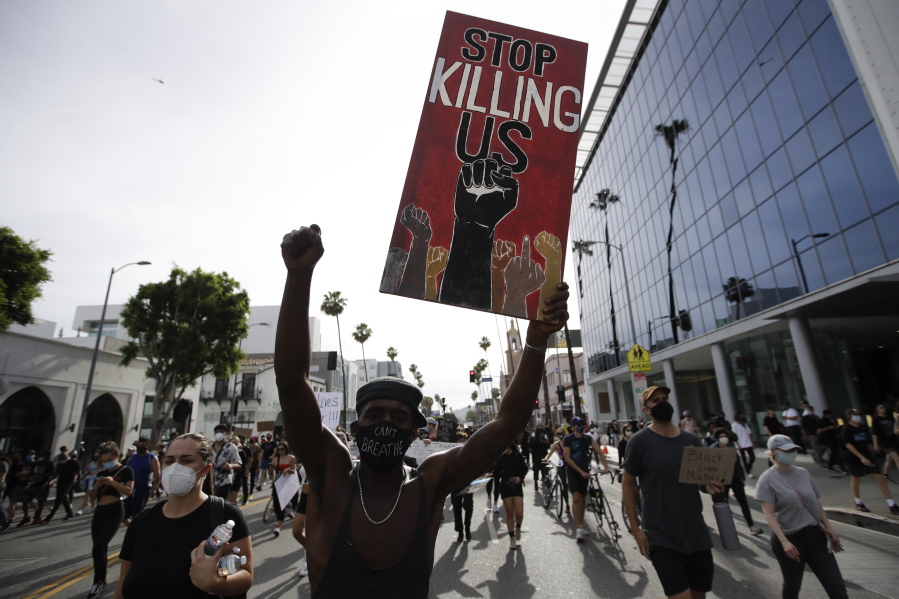Black Men Heal co-founder Zakia Williams was deeply moved as she watched a young Black man become emotional while speaking about the mental health toll the past few years have taken on him.
“He said, ‘I just want to play basketball without fear of getting shot. I just want to live. I just want to be,’” Williams recalled the young man saying at a virtual group therapy session, Kings Corner, that her Philadelphia-based group holds weekly for Black men across the U.S. and internationally.
“A lot of our men report being overwhelmed, tired and feeling like they’re being attacked. They see themselves in George Floyd. Each one of them says, ‘That could have been me.’”
Wednesday marked the second anniversary of Floyd’s killing by a Minneapolis police officer, which sparked a global protest movement and calls for a racial reckoning to address structural racism that has created long-standing inequities impacting generations of Black Americans.
Floyd’s slaying, along with a series of killings of other Black Americans, has wrought a heavy toll on the emotional and mental health of Black communities burdened by centuries of oppressive systems and racist practices. Mental health experts say the racism that causes the trauma is embedded in the country’s fabric and can be directly linked to the mental duress that many experience today.
But the nation has been slow to reckon with the generational impact of racial trauma, a form of identity-related distress that people of color experience due to racism and discrimination.
“Black mental health has always been a topic of concern,” said Dr. Christine Crawford, associate medical director at the National Alliance on Mental Illness.
“Continuously seeing these images of Black people being killed … can elicit trauma-like symptoms in Black people and in others who feel somehow connected to what is going on,” she said. This “impact of vicarious racism certainly has contributed to worsening mental health states, specifically within the Black community.”
The past two years have been particularly traumatizing for Black Americans as the coronavirus pandemic cut a devastating swath through their communities, taking the lives of elders, community pillars and loved ones across the nation.
“The neighbors who never came back after that ambulance ride, we saw it up close and personal,” Riana Elyse Anderson, a psychologist and assistant professor at the University of Michigan’s School of Public Health, said of her hometown of Detroit, which was hit hard by the pandemic.
“And the greater Black community, when you’re looking at how disproportionate the impact was to our mental health, our financial well-being and the loved ones who are no longer here, it’s really hard for us to move forward.”



